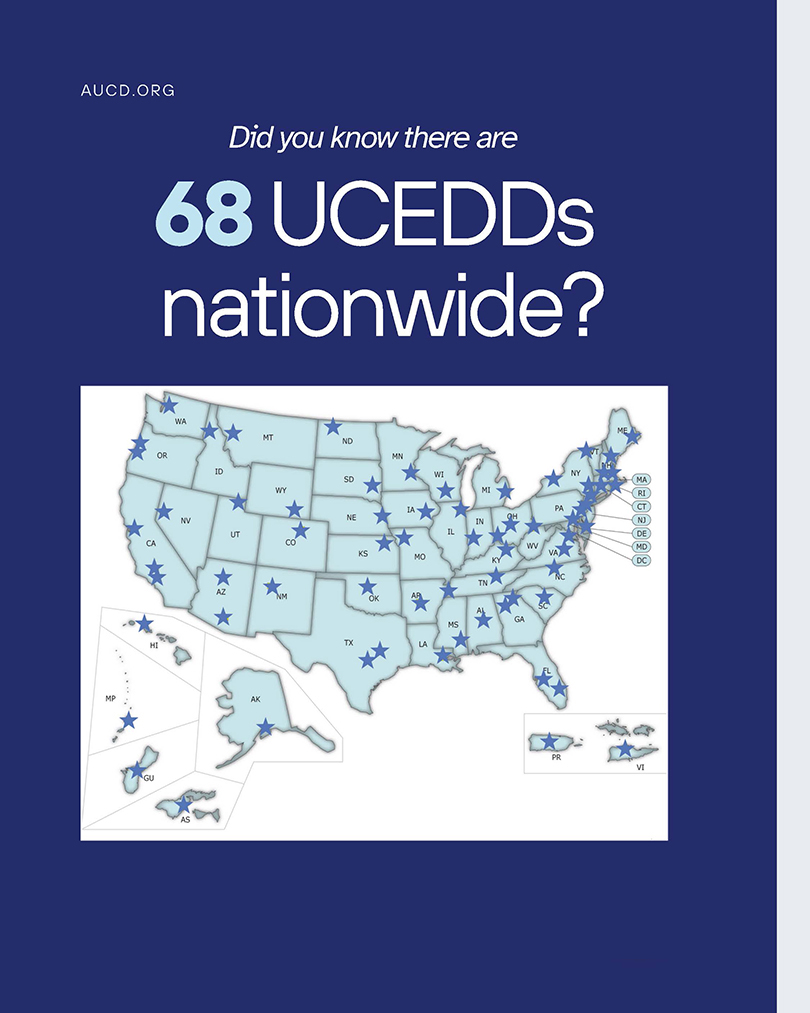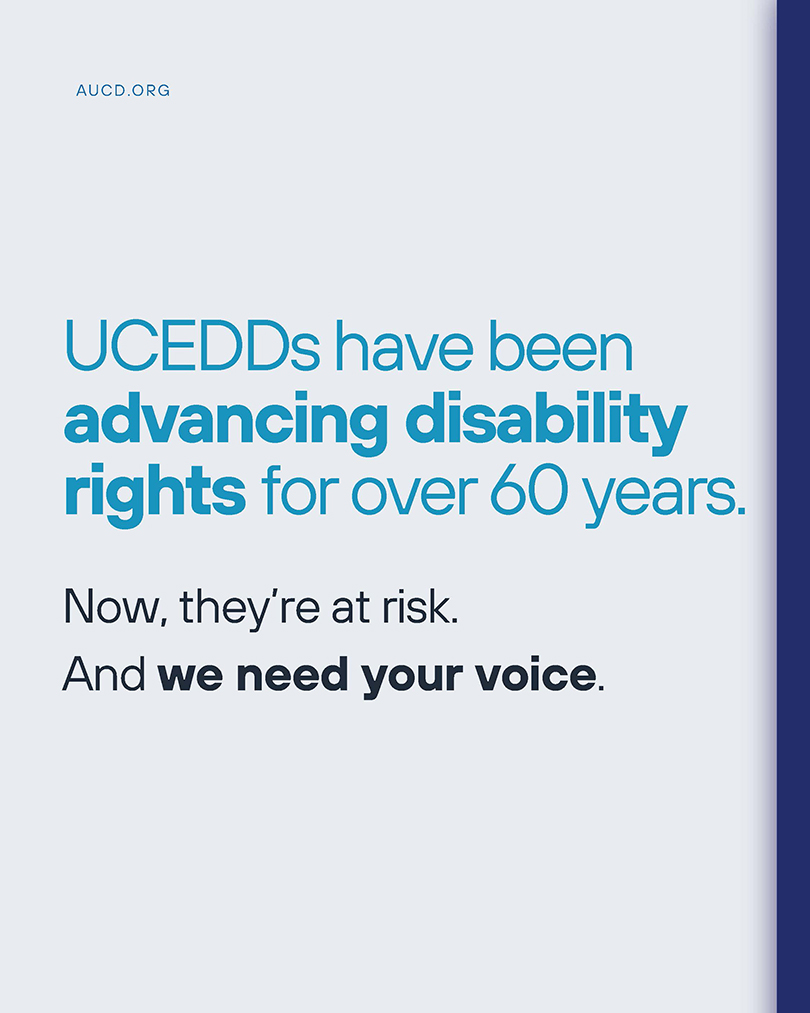Speak Up for UCEDDs
UCEDDs are national leaders in building inclusive communities.
The Association of University Centers for Disabilities (AUCD) is calling on its community to help share why keeping University Centers of Excellence in Developmental Disabilities (UCEDD) independent is important for the disability community.












